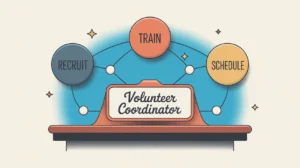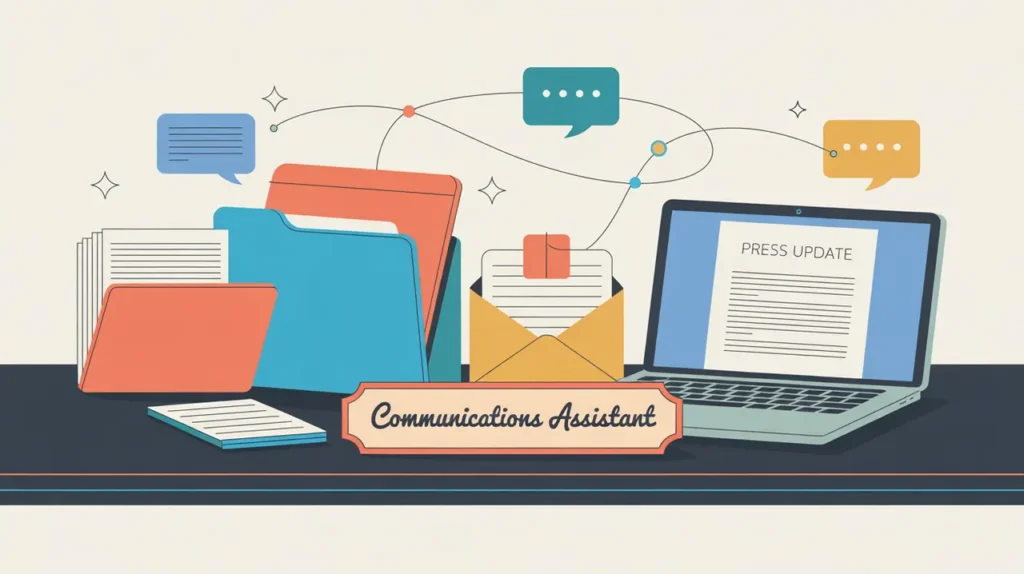What Does the Communications Manager Role Involve?
A communications officer plays a central role in executing an organization’s communications strategy by developing content, managing channels, and supporting media and stakeholder engagement. This involves drafting and editing materials, coordinating digital communications, managing press outreach, supporting campaigns, and ensuring message consistency across platforms. The role sits within the communications function, often acting as a bridge between strategy and execution. In both nonprofits and social enterprises, communications officers are key contributors to raising visibility, amplifying mission impact, and maintaining the organization’s public presence.
At What Level does this Role Operate?
Mid to Senior Level: This role typically reports to a communications manager or director and involves significant autonomy in executing communications activities. Communications officers are expected to manage specific portfolios or channels, contribute strategic insights, and collaborate across teams to ensure cohesive messaging.
Relative Employability: Communications officer roles are in steady demand across nonprofits, social enterprises, advocacy groups, and philanthropic organizations. Organizations rely on experienced communications professionals who can combine strong execution skills with strategic thinking to manage dynamic communications environments.
Relative Pay Scale: Within nonprofits and social enterprises, communications officer roles typically sit in the mid to upper mid pay bands, reflecting their expanded responsibilities and specialized expertise.
What are the Key Responsibilities and Activities?
- Draft and edit press releases, articles, newsletters, and digital content for multiple platforms
- Manage social media channels, content calendars, and audience engagement strategies
- Coordinate media relations including pitching stories, managing press contacts, and responding to inquiries
- Contribute to the development and execution of communications campaigns and advocacy initiatives
- Support internal communications to ensure alignment and message consistency across departments
- Collaborate with program, policy, and fundraising teams to translate complex information into compelling narratives
- Track communications performance metrics and provide insights to refine strategies
- Ensure brand guidelines are applied consistently across all communications outputs
What Core Competencies and Qualifications are Needed?
Required Qualifications and Experience
The following reflect common qualifications and experience expected for this role, while recognizing that pathways may vary by context, organization, and region.
- Relevant academic background in communications, journalism, marketing, public relations, or a related field, or equivalent professional experience
- Several years of experience in communications, ideally with exposure to media relations, digital strategy, and campaign work
- Proven ability to produce clear, compelling written content for diverse audiences
- Familiarity with digital communications tools, content management systems, and analytics platforms
- Experience managing multiple projects and working across teams
Key Competencies
- Excellent writing, editing, and storytelling abilities
- Media relations and digital communications expertise
- Strategic thinking and audience awareness
- Strong organizational and project management skills
- Cross-functional collaboration and communication abilities
- Adaptability in fast-paced or dynamic communications environments
How are AI and Automation Shaping this Role?
An AI-native communications officer will look to AI and automation to strengthen campaign strategy, content production, and performance tracking. They can use AI tools to analyze audience behavior, generate and refine content, optimize distribution timing, and monitor media coverage in real time. Automation can streamline workflows such as scheduling, reporting, and content curation, allowing the officer to focus on strategic messaging and relationship building. By integrating AI thoughtfully, communications officers can enhance both the precision and reach of their work.
What Career Pathways and Transferable Skills are Associated with this Role?
Communications officer roles offer strong progression opportunities to communications manager, director, or strategist positions. The skills developed in this role include media engagement, digital strategy, content creation, and cross-functional collaboration. They are likely transferable across nonprofits, social enterprises, public agencies, advocacy groups, and corporate communications. This role provides a solid foundation for advancing into leadership positions that shape organizational narratives and public influence.







